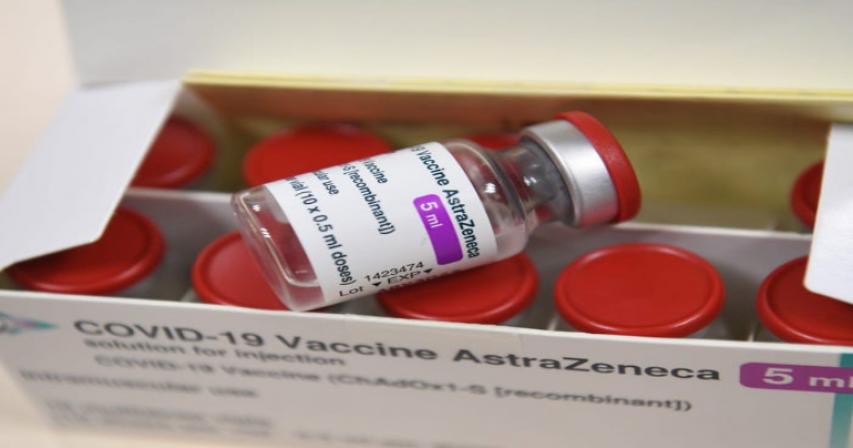Coronavirus - EU sues AstraZeneca over vaccine delivery delays
- 4 years ago

The European Union has launched legal action against the coronavirus vaccine manufacturer AstraZeneca.
The European Commission - the EU's executive branch - said it was suing the company for not respecting its vaccine supply contract, and for not having a "reliable" plan to ensure timely deliveries.
AstraZeneca said the move was "without merit".
It said it would "strongly defend itself in court".
The legal action marks an escalation in a long-running dispute between the two sides over the supply of coronavirus vaccines.
Some in the bloc have claimed that AstraZeneca has shown preferential treatment to the UK - but the company has denied this.
Meanwhile, the US has announced that it will share up to 60 million doses of its AstraZeneca vaccine with other countries as they become available. The doses will be able to be exported in the coming months after a federal safety review, AP news agency reports.
What do we know about the legal action?
A European Commission spokesman said the action was launched on Friday, with the backing of all 27 member states.
It stems from a deal the commission signed last August for 300 million doses of the Oxford-AstraZeneca vaccine, with an option for 100 million more.
Earlier this year, AstraZeneca said its supplies would be reduced because of production problems. Of 80 million doses planned for delivery in the first quarter of 2021, only about 30 million were sent.
According to the European Commission, the company is set to provide 70 million doses in the second quarter of 2021 instead of the 180 million that were initially arranged.
"The terms of the contract, or some terms of the contract, have not been respected," the spokesman said. "We want to make sure that there's a speedy delivery of a sufficient number of doses... which have been promised on the basis of the contract."
Health Commissioner Stella Kyriakides tweeted that the commission's priority was to "ensure Covid-19 vaccine deliveries take place to protect the health of the European Union".
"Every vaccine dose counts. Every vaccine dose saves lives," she wrote.
One EU official told Reuters news agency that the move was taken to "send a message" to AstraZeneca's chief executive Pascal Soriot.
In a statement responding to the announcement, AstraZeneca said it had "fully complied" with its agreement with the EU, and hoped to resolve the dispute as soon as possible.
"Following an unprecedented year of scientific discovery, very complex negotiations, and manufacturing challenges, our company is about to deliver almost 50m doses to European countries by the end of April, in line with our forecast," the British-Swedish company said.
"We are making progress addressing the technical challenges and our output is improving, but the production cycle of a vaccine is very long which means these improvements take time to result in increased finished vaccine doses," the statement read.
AstraZeneca had previously said that the contract obliged the company to make its "best effort" to meet EU demand, without compelling it to stick to a specific timetable.
UK Prime Minister Boris Johnson's spokesman told reporters he was unaware of the specifics around the legal action. He said AstraZeneca had been a "hugely strong partner for the UK and in fact, globally, for the work they're doing".
Under the contract, any legal action would need to be resolved by Belgian courts.
The EU originally planned to use AstraZeneca as the main vaccine in its rollout, but following the supply issues, the bloc now relies mostly on the Pfizer-BioNTech jab.
Despite vaccine delays, the EU is still aiming for "a minimum of 70% of the entire adult population" to have received at least one dose of a coronavirus vaccine by this summer.
What is happening with Covid in Europe?
The announcement of legal action on Monday came as some countries began to ease restrictions.
Millions of French children returned to the classroom, as primary schools and nurseries reopened following a three-week shutdown. In Italy, restaurants and bars in much of the country were allowed to serve customers outside, while hairdressers in Belgium reopened their doors.
Meanwhile, the mayor of the Spanish city of Pamplona announced that the annual Sanfermín fiesta in July - with its famous running of the bulls - would be cancelled for a second year.
Outside of the EU, Turkey announced a coronavirus lockdown until 17 May in a bid to curb a surge in coronavirus cases and deaths.
Source: BBC
Comments